Three Important Concerns Self-Employed Individuals Should Address in their Estate Plan
Being self-employed is no easy task. You are the owner, and in some cases, the only employee. While you may have more freedom than the average worker, a lot of responsibilities lie on your shoulders. Working together with Bily Harlow, Attorneys at Law, we can craft a comprehensive estate plan that will help you address three important concerns every small business owner should plan for.
1. Protecting Your Financial Future
You are your own boss, and you have your own business. It is your responsibility to obtain the important things we associate with employment, like retirement accounts and insurance. To properly plan for your financial future and the future of your business and loved ones, it is important to have a comprehensive estate plan and an experienced team of advisors. The right team of advisors can educate you about the available retirement plan options and the best investment strategies based on your unique situation. You can also discuss the different types of insurance you may need to protect the important aspects of your life, such as disability, life, and business insurance. An experienced advisor team can help you determine how much insurance you need to ensure that you and your loved ones are protected no matter what, as well as how best to protect what you have worked so hard for.
Typically, professional advisors like accountants, financial planners, insurance agents, and estate planning lawyers work together to protect your financial future both during and after your life, and in the event of any incapacity. It is crucially important to do this planning before something happens. The cost, in both time and money, of planning for incapacity and death is dwarfed by the cost of emergency court procedures, lengthy probates, and potential commercial disputes.
2. Protecting Your Business Endeavors
As a self-employed individual, your business activities likely support most, if not all, of the financial obligations in your life. It is important that these obligations are protected to ensure that you can support yourself and your loved ones no matter the circumstances. By working with an experienced planning team, we can address some important considerations that may keep you up at night:
● Are you the only person making money for the business, or are there employees?
● What will happen to the business if you become incapacitated? Can the business continue without you, or does all work halt? Will payroll be on time?
● Does your business have any contractual obligations that need to be fulfilled by a certain time? Will your business be able to fulfill those obligations in the event of your incapacity or passing?
● What will happen if or when you decide to retire? Will you need a different source of income, or will you have some aspect of your business that you can sell?
● What will happen to the business and your loved ones when you die? What will be left to support your loved ones?
If your estate plan does not address the operations of your business in the event of your incapacity or passing, your business (and employees, if any) could be significantly adversely affected.
3. Limiting Liability
Everything in life comes with some risk—being self-employed is no different. From a business standpoint, a self-employed person may be personally susceptible to the business’s creditors or other lawsuits involving the business’s activities. As an individual, you may also be concerned about personal creditor claims, potential divorces, and other lawsuits. Although we cannot eliminate all risks, we can take steps to help minimize them. With respect to the business, it is important for you to work with an experienced attorney and tax preparer or accountant to ensure that the business is formed or organized in a way that limits liability for some of the potential risks.
Personally, you can take the first steps toward protecting yourself and your business by adequately insuring both. If you are concerned about protecting what you leave behind to your loved ones, there are special types of trusts that can be used to help ensure that your loved ones can benefit from their inheritance while minimizing the likelihood that it will be taken and used for a different purpose. With a properly drafted trust, you may be able to provide for your children after your passing without those assets being subject to your child’s liability.
Conclusion
As small business owners ourselves, we at Bily Harlow, Attorneys at Law understand that you have a lot on your plate. Let us take part of the burden off of your shoulders by crafting an estate plan with your professional advisors that accounts for both your personal and business circumstances. Contact us today to schedule your initial consultation to get on the path to a protected future for you, your business endeavors, and your loved ones.
This blog post is for informational purposes only. This blog post is not legal advice and does not create any attorney-client relationship. For a careful review of your particular situation, contact Bily Harlow, Attorneys at Law, today.

